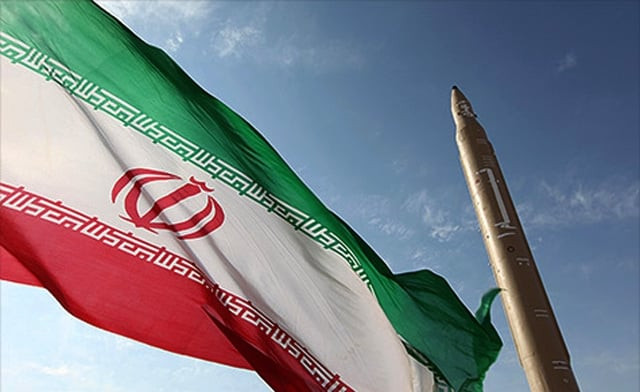Russia seeking fresh nuclear talks with Iran by end-January
Iran and 6 world powers are due to resume talks in late January, but a EU official they had yet to agree a date.

Russia's negotiator at the talks, said that until there is a final agreement "there is no agreement". PHOTO: AFP/ FILE
Iranian news agency ISNA said on Wednesday that Iran and six world powers would resume talks in late January, but a European Union official said the two sides had yet to agree a date. No venue has been agreed.
"Russia is concerned about this and we continue to work, including with our Iranian partners, to resolve this issue as soon as possible," Russian Deputy Foreign Minister Sergei Ryabkov said, according to state-run news agency Itar-Tass.
Ryabkov, Russia's negotiator at the talks, said that until there is a final agreement "there is no agreement".
The Russian Foreign Ministry said later that there was an understanding among the parties involved that the meeting should take place this month, and that the dates reported by ISNA - January 28-29 - were being discussed.
But it said the dates could change if there is no agreement on the venue, and added that Russia was open to any venue.
Senior UN nuclear inspectors were in Iran for a second day of talks on Thursday, seeking to unblock a long-stalled investigation into suspected atomic bomb research in the Islamic state.
ISNA confirmed discussions had resumed, but gave no further details. There was no immediate comment from the Vienna-based International Atomic Energy Agency (IAEA), the UN nuclear watchdog.
Finally ready?
World powers are watching the IAEA-Iran meeting for any signs as to whether Tehran, which faces intensifying sanctions pressure, may be prepared to finally start tackling international concerns about its nuclear activity.
Russia built Iran's first nuclear power plant and has warmer ties with Tehran than the United States and other Western nations do, giving it potential levers of pressure on Iran.
But Ryabkov said agreeing a date and venue for talks was ultimately up to the office of EU policy chief Catherine Ashton, who oversees contacts with Iran over its nuclear programme on behalf of the United States, Russia, China, France, Britain and Germany.
A spokesperson for Ashton said in Brussels on Wednesday that no date had yet been set. "Contacts are still ongoing. We are waiting for the Iranians to respond," Michael Mann said when asked about the ISNA report.
Western and Russian diplomats had hoped for talks to restart in December or mid-January. Since the last meeting in June, Iran has pressed ahead with disputed nuclear activity and amassed more material that can have both civilian and military purposes.
Russia approved four rounds of UN Security Council sanctions against Iran over its nuclear programme but opposes new curbs and has called separate Western sanctions counterproductive.
Russia has warned that an Israeli attack on Iranian nuclear facilities would be disastrous and, while Moscow says Tehran must dispel concerns about its nuclear programme, it has suggested Western fears about military aims are overblown.





1725099588-0/BeFunky-(41)1725099588-0-208x130.webp)













COMMENTS
Comments are moderated and generally will be posted if they are on-topic and not abusive.
For more information, please see our Comments FAQ